Jules Bianchi death: F1 must 'never relent in improving safety'
- Published
Senior figures in Formula 1 have pledged to continue their pursuit of increased safety in the wake of the death of Jules Bianchi.
The Frenchman died as a result of severe head injuries suffered in a crash at the 2014 Japanese Grand Prix.
F1 supremo Bernie Ecclestone said Bianchi's loss was "so sad", adding: "We must never let this happen again."
The Grand Prix Drivers' Association (GPDA), external said it felt a responsibility "to never relent in improving safety".
The drivers' body said Bianchi's death was a reminder that, although F1 is constantly striving to make the sport safer, more can always be done.
"It is at times like this that we are brutally reminded of how dangerous racing still remains," a statement said.
"Despite considerable improvements, we, the grand prix drivers, owe it to the racing community, to the lost ones and to Jules, his family and friends, to never relent in improving safety."
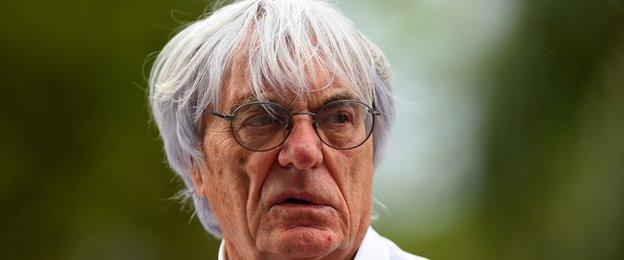
F1 commercial boss Bernie Ecclestone expressed his sadness at the death of Bianchi and stressed incidents like this "must never happen again"
Ecclestone believes F1 is probably safer than it has ever been.
"What happened to Jules was just very, very, very unfortunate," he told BBC Radio 5 live's Sportsweek.
Jules Bianchi 'fought to the very end', his family said in a statement
"Of course it's dangerous. We have always done our best for driver safety. People don't go to see accidents, they go to see good racing."
Graeme Lowdon - the president and sporting director of the Marussia team (now renamed Manor) for which Bianchi was driving at the time of his accident - said the 25-year-old's loss would be felt deeply within F1 at the Hungarian Grand Prix next weekend.
"Jules had very many friends in the paddock and it'll be a sombre place but he was a racer and I know he would want to see the team continue and the sport continue as well," Lowdon said.
"We always knew it was something that could happen, but it's still a shock.
"It's a very sad day for the sport and the team. It's a real shock to lose a team-mate in such a way. It's been really terrible for everyone.
"Our heart goes out to Jules's family. He's from an extremely loving family and it's terrible they've had to go through this."
Read more on Bianchi's death | |
|---|---|
Bianchi never regained consciousness following a collision with a recovery vehicle after he lost control in wet conditions at Suzuka last October. He went off the track despite the presence of waved yellow flags, a warning that drivers must slow down and be prepared to stop.
A series of safety changes have already been made in the wake of the accident.
Lowdon said: "It's always important to learn from any incident like this, and to be fair the sport has already improved a number of safety measures. Hopefully we'll never see an accident like this again."
But Max Mosley, the former president of governing body the FIA, said F1 could never be entirely safe.
"It's no good pretending F1 is safe because it isn't," said Mosley, who led a major drive for increased safety following the 1994 death of three-time world champion Ayrton Senna, the last F1 racer to lose his life before Bianchi.
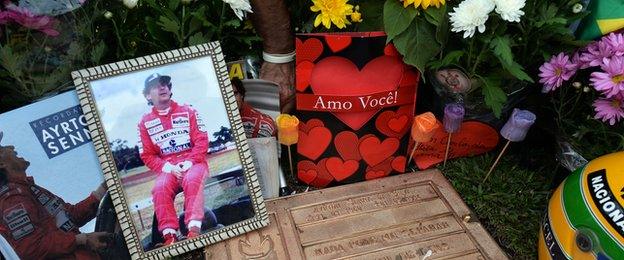
Fans left tributes on Ayrton Senna's grave to commemorate the 20th anniversary of his death
"There's always a danger something will go wrong. You can never get a zero probability of injury but I think we've minimised it.
"You can always improve safety. One can always try to anticipate these sort of things, rather than wait until after the accident."
Bianchi raced in 34 grands prix for the back-of-the-grid team but had already made an impression as a potential future star, particularly with his scoring of Marussia's only points with a strong drive to ninth place in Monaco last year.
Lowdon believes the sport has lost a great talent.
"In my opinion he could have been a future world champion," Lowdon said. "You could tell that from the moment he walked into our garage.
"The best drivers just have something about their job and he was very impressive in everything he did.
"He was a tremendous young man, an extremely impressive racing driver, but more than that he was an exceptional human being as well and very warm and compassionate and that was felt by everyone he met."
- Published18 July 2015
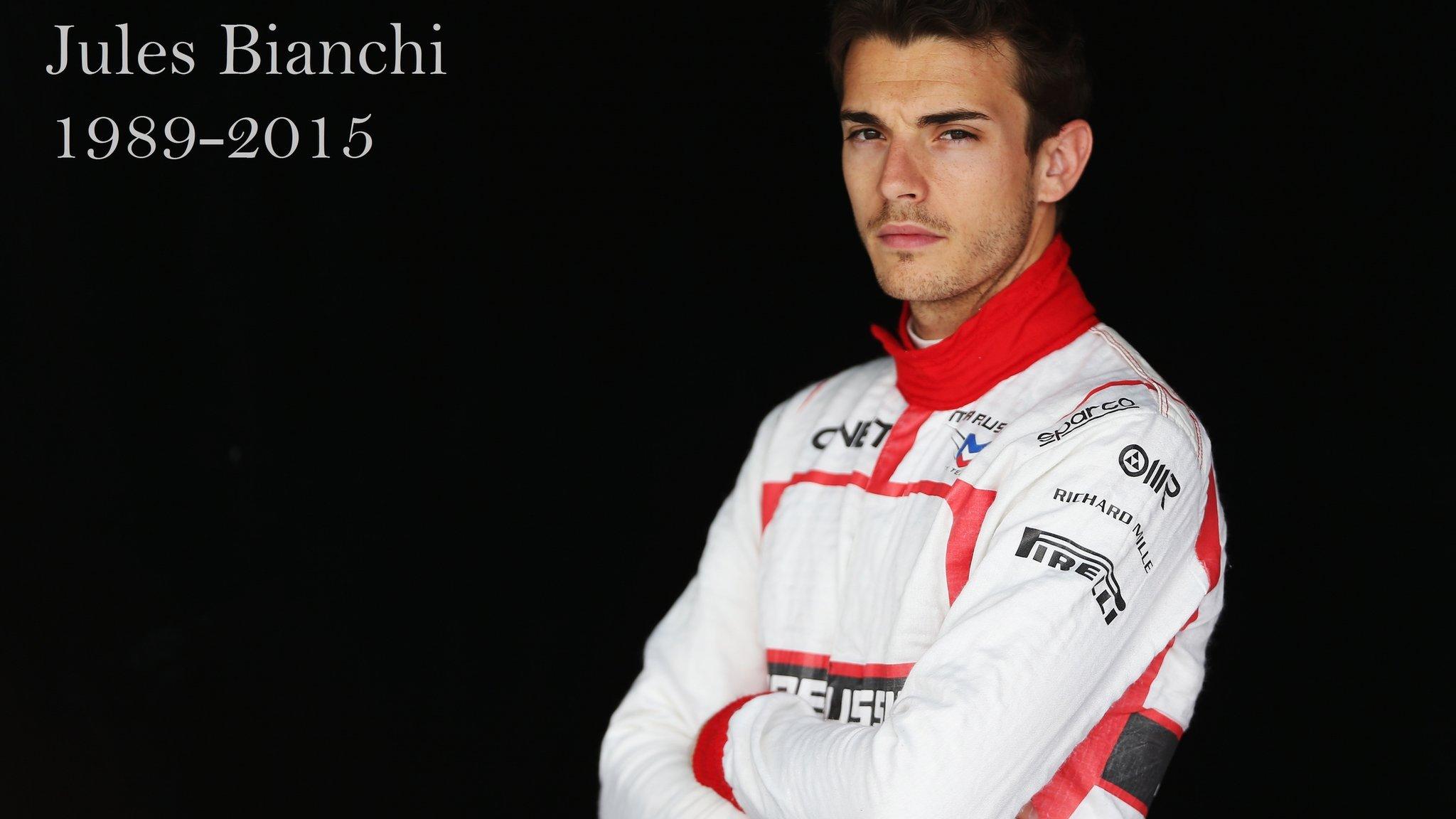
- Published18 July 2015
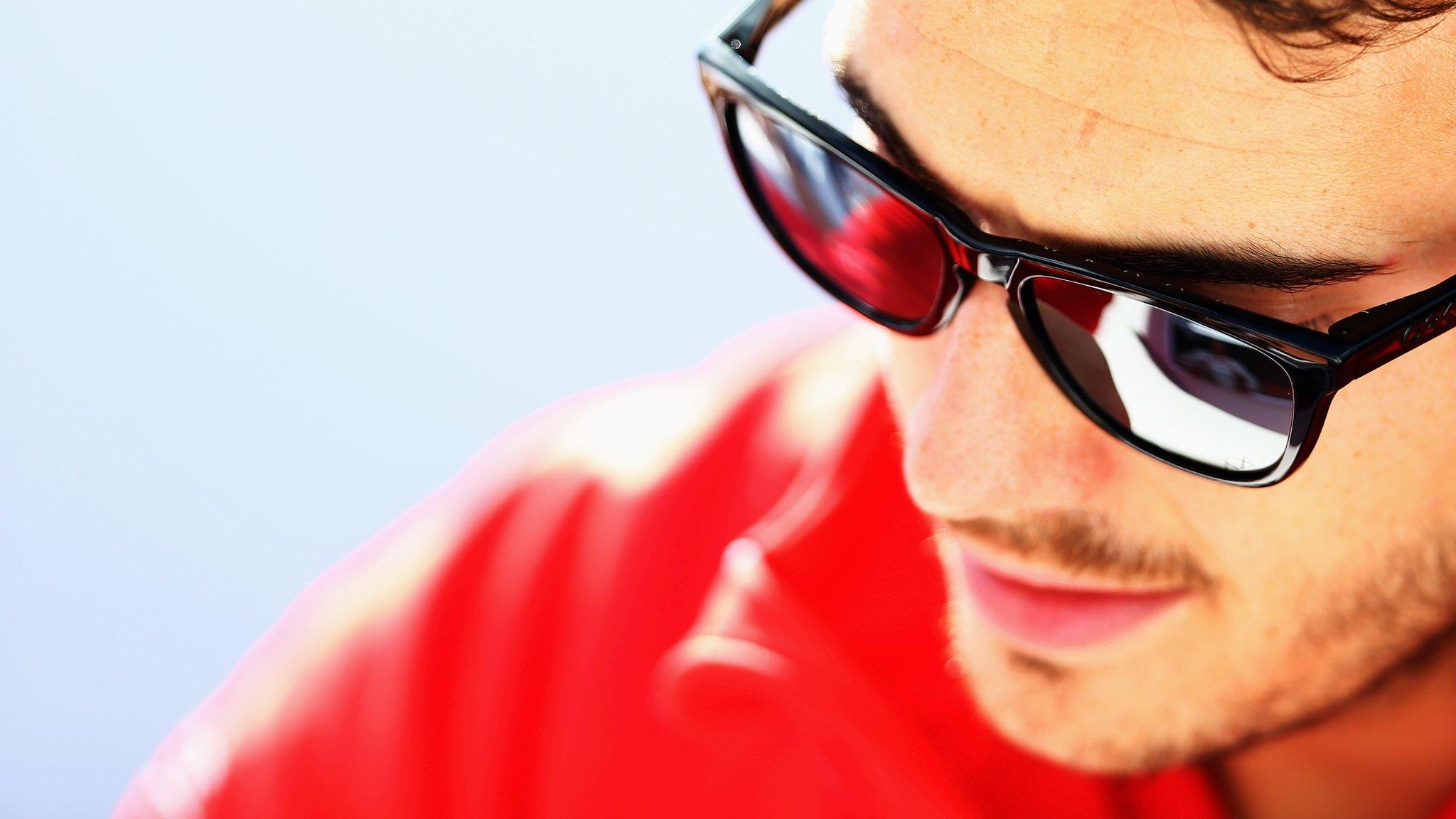
- Published18 July 2015
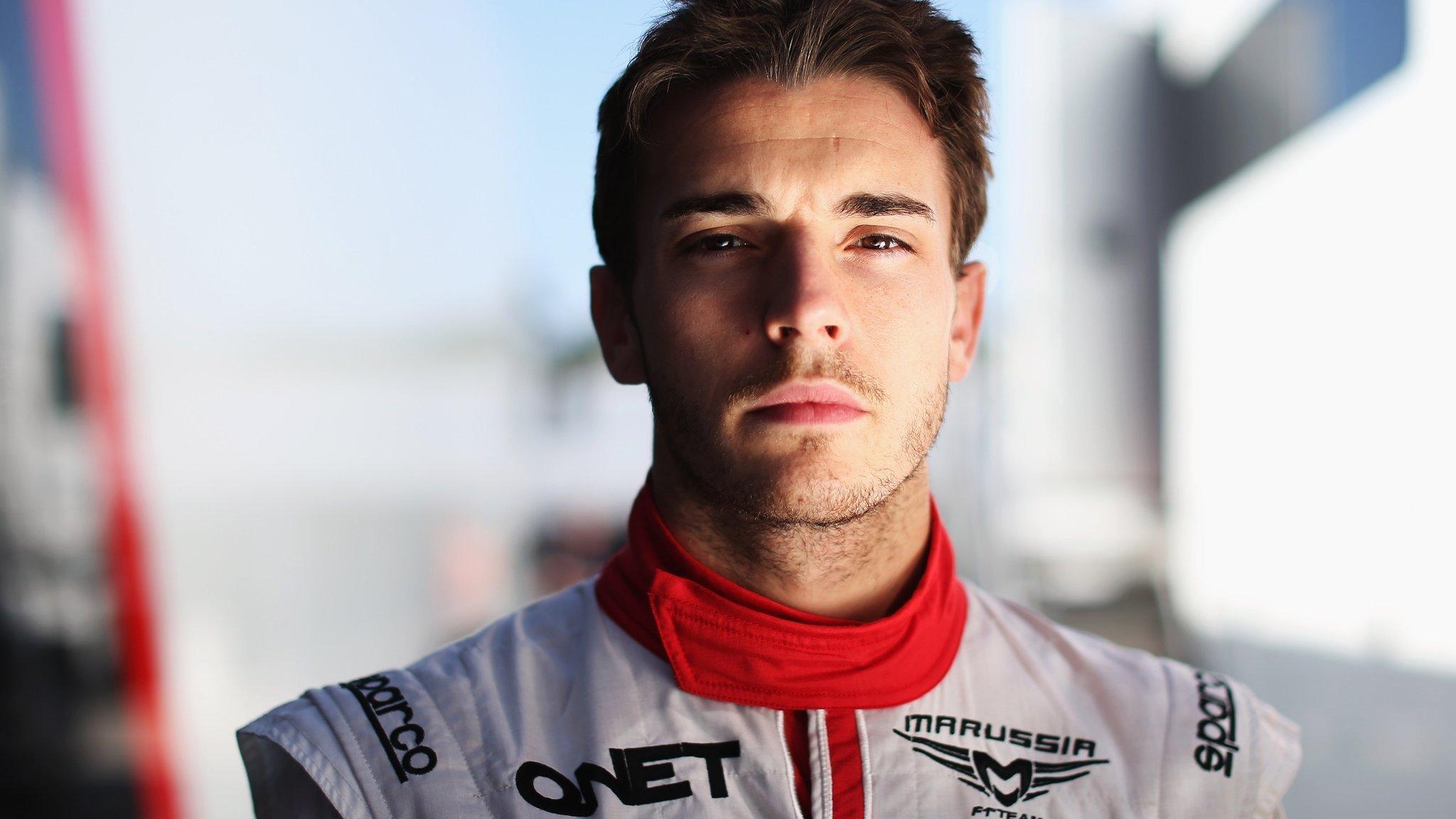
- Published18 July 2015
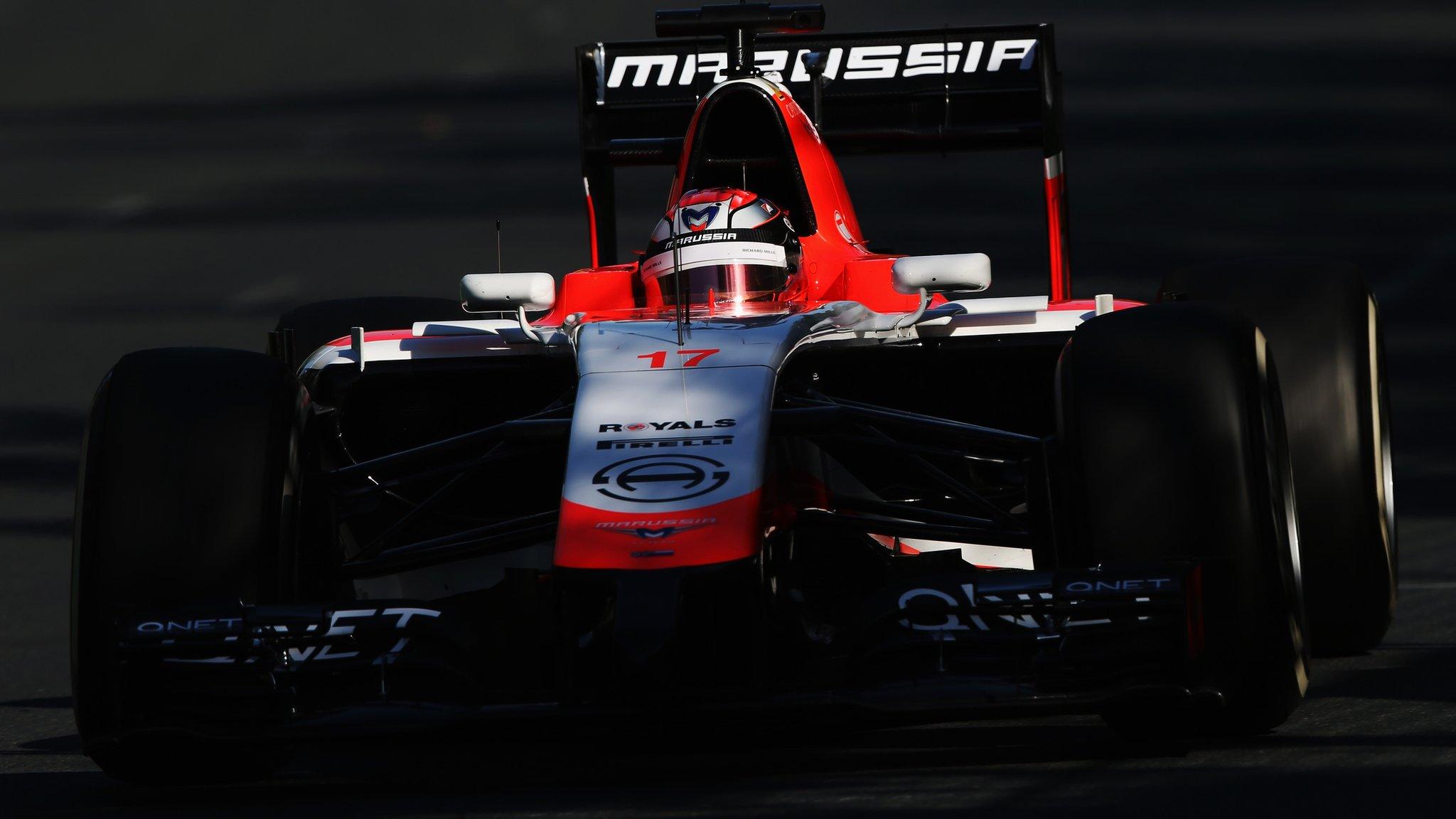
- Published18 December 2015

- Published2 November 2018
